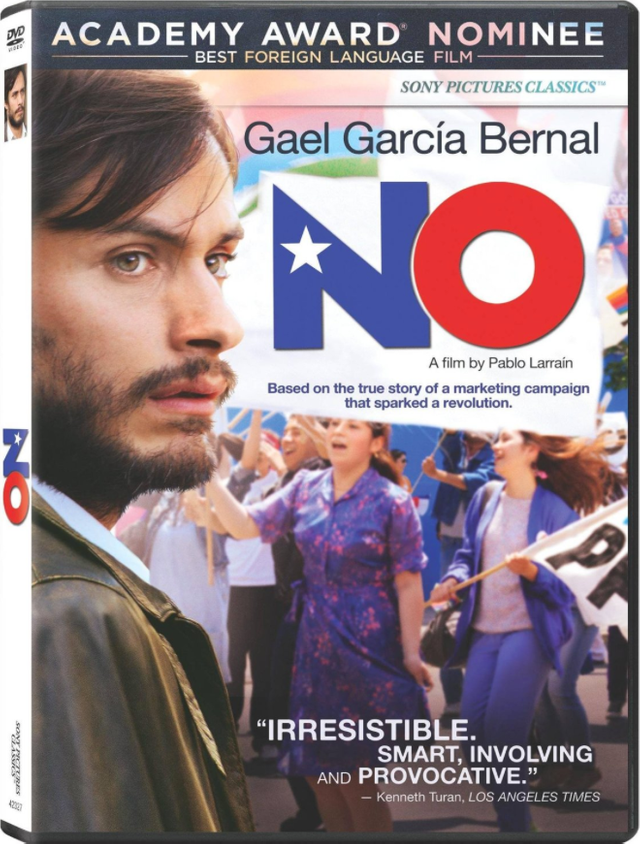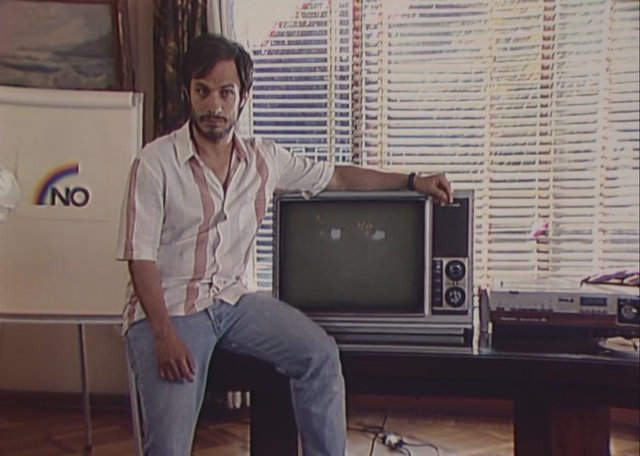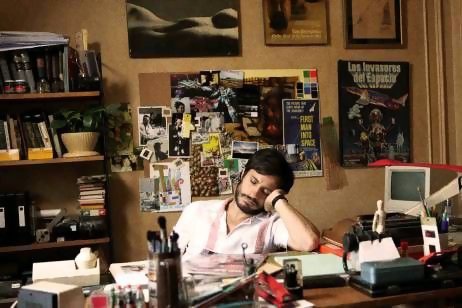Movie Review: No (2012), Directed by Pablo Larraín or How The TV Can Replace A Government
Our perception of reality is a subjective one, limited by the experiences and the environment in which we live. That is why the longer we live and experience, the more we understand how little we know.

The key - advertisement
One of the media that best reveals these traits of human nature is advertising. Ugly and at the same time, advertising is the art of altering perception. We cease to see an objective reality and take ideas and concepts suggested by others. Become puppets with our will and ingest ready-packed messages that send us to the goods we need or not.

As I said above, advertising is still an art, and whether we like it or not, finds its place in the society we live in, serving more or less noble interests. No is a movie built around an ad campaign and talks about the power of a message and its ability to shape history. The film follows the campaign for the Chilean referendum in 1988, a referendum that decided the legitimacy of Augusto Pinochet's regime. For the first time since the establishment of the dictatorial regime, the opposition received access to media channels, especially television. This is how an entire campaign was born to convince people to vote "No" at the referendum and put an end to the totalitarian regime.
The Action

The events are seen from the perspective of René Saavedra, one of the artisans of the "No" campaign, and presents the efforts of all those involved in a struggle with limited resources and against a superior net opponent. The result is surprising and puts us in front of a sensible and edifying film at the same time. “No” is a production of resistance and struggle, but not in the classical sense of the word. Heroes act here through people's TVs and create realities to sell. But unlike other situations, it does not sell any product but the destiny of a nation.
The film has many elements on its side, from quality acting to new and inspired subject. It's nice to explore a less-known part of history and get into the backdrop of events that have moved the world. The whole production is very present in the events that it illustrates, the proof in this sense being the image of the film that uses the tone and the color specific to the televisions of that period. It's just one of the subtle elements that give the film its veracity and it boosts the feeling of "there".
What surprises at "No" is not only its social and historical relevance, but also the ability of the film to keep you emotionally involved. The entire referendum campaign unfolds in front of the viewer with all the challenges and moral dilemmas of the protagonists. The tension is present and gives the film rhythm, despite the already known end.
Originality
The documentary value of production comes from the realities it presents, especially the viewer who does not know the Chilean society. The film makes a profound analysis of a split world and a dictatorial regime that offers everything, but not for all. This is where the cultural and historical shock originates, especially if you look from the perspective of a past society through a dictatorship, but of another origin.
Director: Pablo Larraín Writers: Pedro Peirano (screenplay), Antonio Skármeta (play) Stars: Gael García Bernal, Alfredo Castro, Antonia Zegers
13 wins and 16 nominations (Nominatedo for Oscar - Best Foreign Language Film of the Year)

Gael Garcia Bernal about Oscar nomination
The Oscar hasn’t arrived yet. For the film, it’s a great opportunity for it to be seen in many different parts of the world. It’s almost immeasurable how much more people get to see a film once it gets a nomination in whatever category, especially this one which is perhaps one of the most contested. Let’s call it one of the elite highlights of the Oscars. It’s the best films in the world. Of course, it is subjective. You can’t quantify. There are a lot of good films that are left behind and not nominated. Filmmakers all around the world are making great movies now and to be in this category is a great privilege. Even though it sounds commonplace, because everyone says that just being nominated is the award in a sense, it is quite fantastic that out of 71 countries, this film got a chance to get nominated. In a way, it is not only representing Chile but all of Latin America, because we all feel like that. I feel like that. We’re very happy that this happened and let’s see. Hopefully, some surprise will happen that (day.)[http://collider.com/gael-garcia-bernal-pablo-larrain-no-interview/]
Congratulations, good article hits
I am Groot! :D
I know ;)